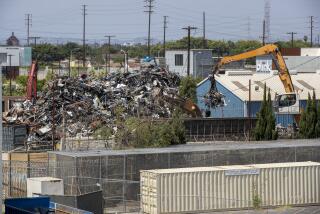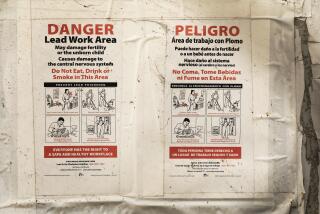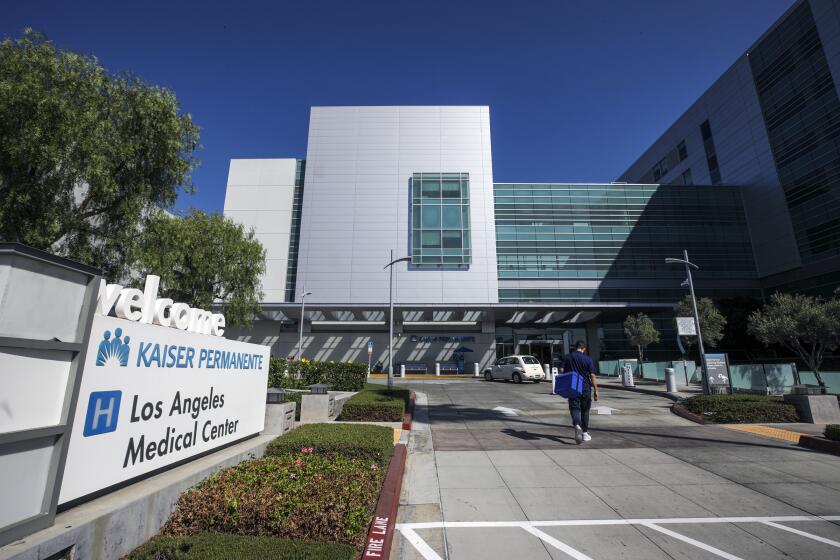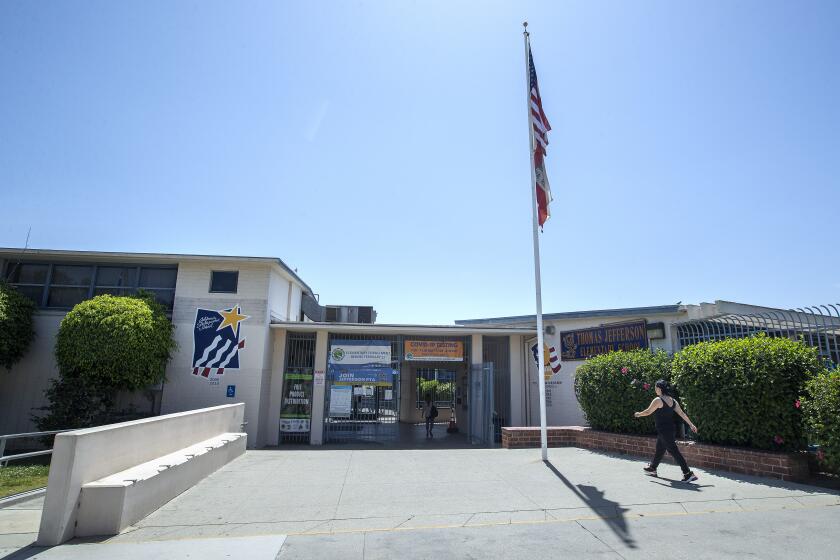Exide plant will pay for blood tests for residents
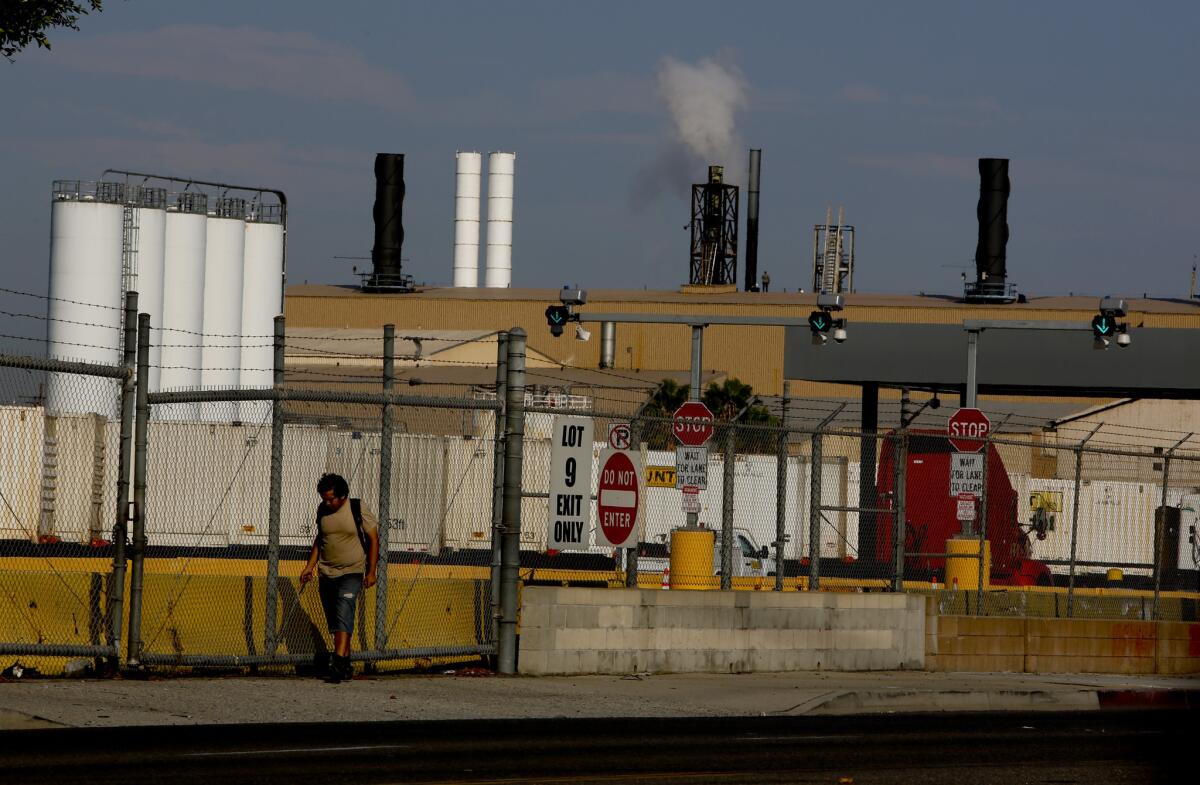
The headline has been corrected, as noted below.
Trying to address worries that a Vernon battery recycler has jeopardized the health of hundreds of thousands of residents in southeast Los Angeles, the Los Angeles County Department of Public Health will offer free blood testing for lead poisoning on a massive scale.
The effort, which is likely to stretch from Boyle Heights to Huntington Park, comes amid rising fears about emissions and leaks from the Exide Technologies facility.
Surrounded by dense immigrant and working-class neighborhoods, it is one of the largest such plants in the country.
Officials said Exide will pay for the tests.
Exide officials did not respond to emails seeking comment in the last week. They have said previously that arsenic and lead emissions have been reduced substantially in recent years.
In 2008, South Coast Air Quality Management District officials ordered the company to cut lead emissions, citing unacceptable health risks. After that, the company made improvements such as enclosing facilities and installing negative air-pressure systems.
This spring, The Times reported that the air district found that elevated arsenic emissions from the plant increased the cancer risk for more than 110,000 people.
The same risk assessment showed that more than 250,000 people from Boyle Heights to Maywood and Huntington Park faced a “chronic hazard” from arsenic exposure, including the possibility of neurological effects on children. It is unclear whether anyone has been harmed, but the stories sparked calls for further investigation.
Lead contamination, which even in small doses can lead to a variety of problems -- including learning disabilities in children -- is far easier to measure. In severe cases of lead poisoning, patients can be treated with compounds that remove the metal from the bloodstream.
But even then, it remains in bones and can cause neurological damage and cancer.
The blood testing could begin late next month. State regulators have already ordered testing of dust around the plant for lead and arsenic, and plan soil tests in October as well.
Dr. Cyrus Rangan, the director of the health department’s bureau of toxicology, said a main reason for the testing is “to provide a measure of reassurance to the public.”
He said he does not expect to find large numbers of people suffering from elevated lead levels, because his office is “not hearing about people with a lot of symptoms of lead poisoning.”
[For the record, 1:45 p.m. Sept. 13: An earlier headline on this post said that blood tests were available for residents near the Exide battery plant. The tests will be available at a later date, which has not yet been announced.]
ALSO:
Marina del Rey adjusts to Russian billionaire’s mega-yacht
Sheriff’s deputy accused of having sex with teen was decorated hero
Barry Bonds’ obstruction of justice conviction upheld by appeals court
More to Read
Start your day right
Sign up for Essential California for news, features and recommendations from the L.A. Times and beyond in your inbox six days a week.
You may occasionally receive promotional content from the Los Angeles Times.
